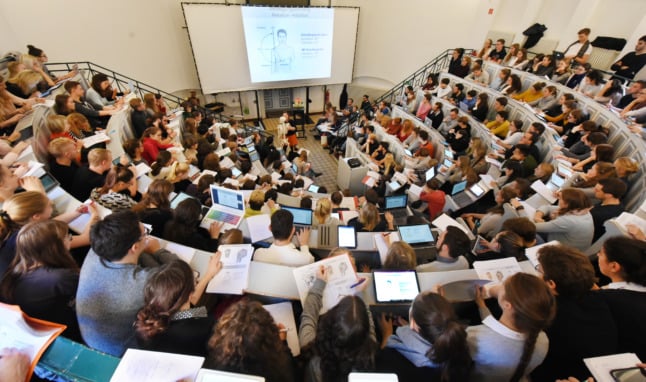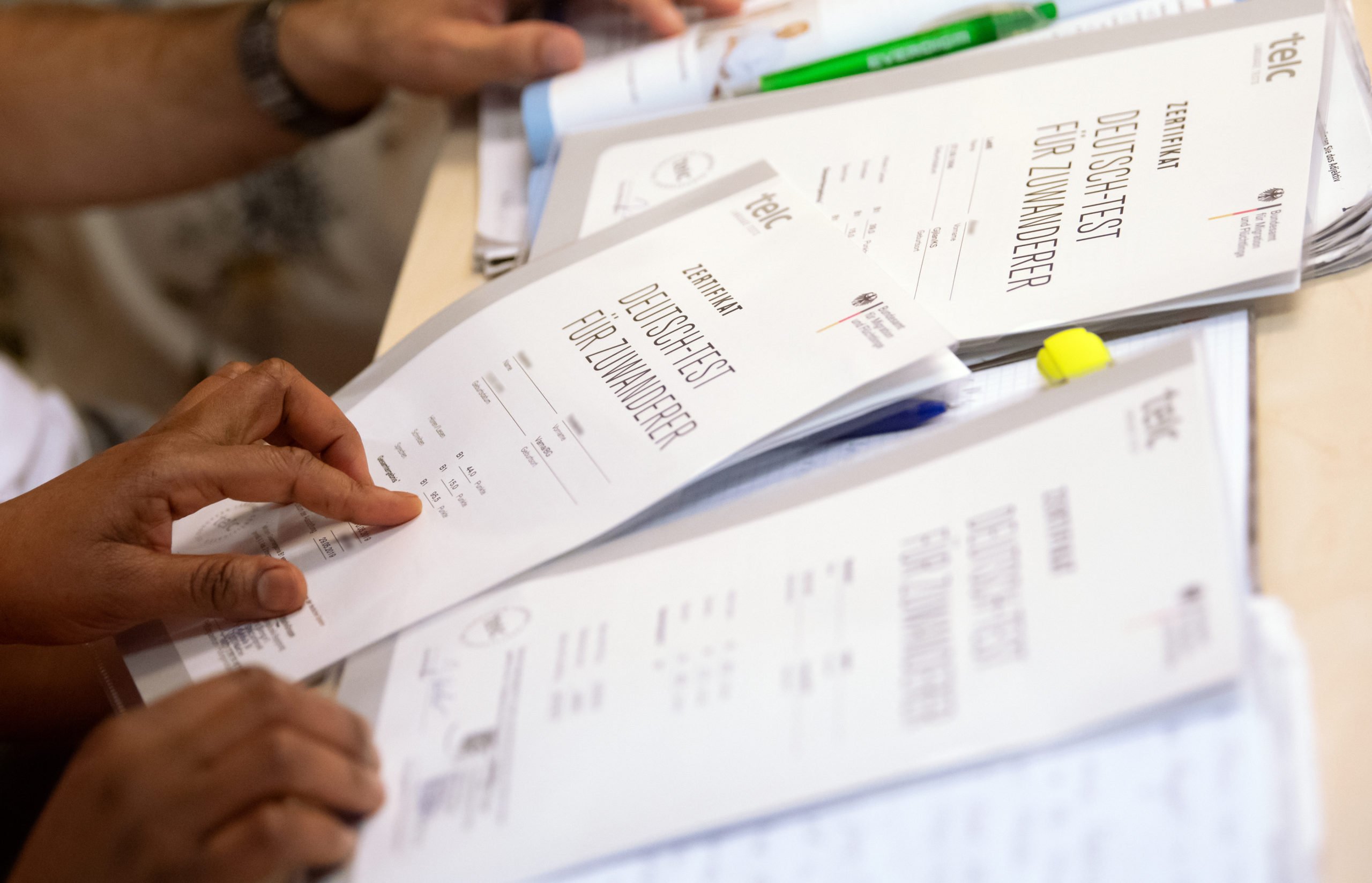das BAföG
The Federal Training Assistance Act (das Bundesausbildungsförderungsgesetz) is the main financial aid given to students in Germany. Don’t be put off by the typically German long compound noun, as it is mostly known by its abbreviation, “BAföG”. BAföG funding constitutes a generous needs-based grant and interest-free loan that helps many German students fund their courses and living situations.
die WG (Wohngemeinschaft)
Most students in Germany tend not to live in university dorms, instead they will choose to live in a Wohngemeinschaft (residential community), which is essentially a flat share, with other students. Popular sites to search for a WG include WG-Gesucht and ImmoScout24.
das Semesterticket
As part of the semester fee you pay upon enrolling at a German university, you receive a Semesterticket, which is a card that is valid on all public transport in your university town (or even the entire state), allowing you to make as many free journeys as you like between your WG, classes and your favourite student cafe.
der Studentenausweis
This is your student ID card that certifies your enrolment at a university, usually valid for one semester, after which it must be renewed or extended. It is essential for getting those student discounts and often has your semester ticket included in it.
READ ALSO: How to finance your master’s studies in Germany as an international student
der/die Ersti
A diminutive form of Erstsemestrige or Erstsemestler, Ersti refers to students who are in their first semester of studies, similar to Freshers or Freshmen. Ersti-Veranstaltungen are events put on specifically for first years.
der Kommilitone, die Kommilitonin
While it may seem a rather formal term, die Kommilitonen refers to your fellow students. If this is too hard to remember, you can always use the term der/die Studienkollege*in, which is a bit like referring to fellow students as your “studying colleagues”.
die Vorlesung
Like in the famous German novel Der Vorleser (or The Reader) by Bernhard Schlink, Die Vorlesung can mean a reading, but in a university setting the term usually refers to a lecture. At German universities it is common for there to be hundreds of students in a lecture, with a professor leading the class. To attend a lecture translates to eine Vorlesung besuchen.
der/die Dozent*in
A Dozent is a university lecturer but can also be a seminar leader or any other teacher position at the university. A more general, gender-neutral term is die Lehrkraft.
die Hausarbeit
Although directly translating to “homework”, Hausarbeit at university refers to term papers, which are longer form essays that many university modules require you to write. A dissertation at the end of your bachelor’s degree, meanwhile, would be your Bachelorarbeit, and your Master’s thesis would be your Masterarbeit.

das Auslandssemester
Das Auslandssemester is a semester abroad, where students will spend one or two semesters studying at a university outside of Germany. Many students choose to do an Auslandssemester in Germany, while many German students do one elsewhere. A general study period abroad can also be called das Auslandsstudium.
die Mensa
Die Mensa is the cafeteria or canteen at German universities that offers hot and cold food at low prices. Vegetarian and vegan options are often also available, with some Mensen in German universities even becoming entirely plant based. They are often on campus and a great meeting spot for many students.
READ ALSO: What it’s like to study abroad in Germany during a pandemic
die Fachschaft
Akin to a student council, a Fachschaft at a German university usually consists of all students of an institute or a department. Membership is automatic upon matriculation to the university, and a small fee is usually paid upon enrolment.
das Studentenwerk or das Studierendenwerk
An institution at universities that is responsible for the social support of the students, promoting social and cultural interests of students. Similar to a student’s union, the Studentenwerke are regulated by state laws and are also paid for by students and carry out the operation of the Mensen, student dormitories and support for foreign students through counselling and cultural offerings.





 Please whitelist us to continue reading.
Please whitelist us to continue reading.
Member comments